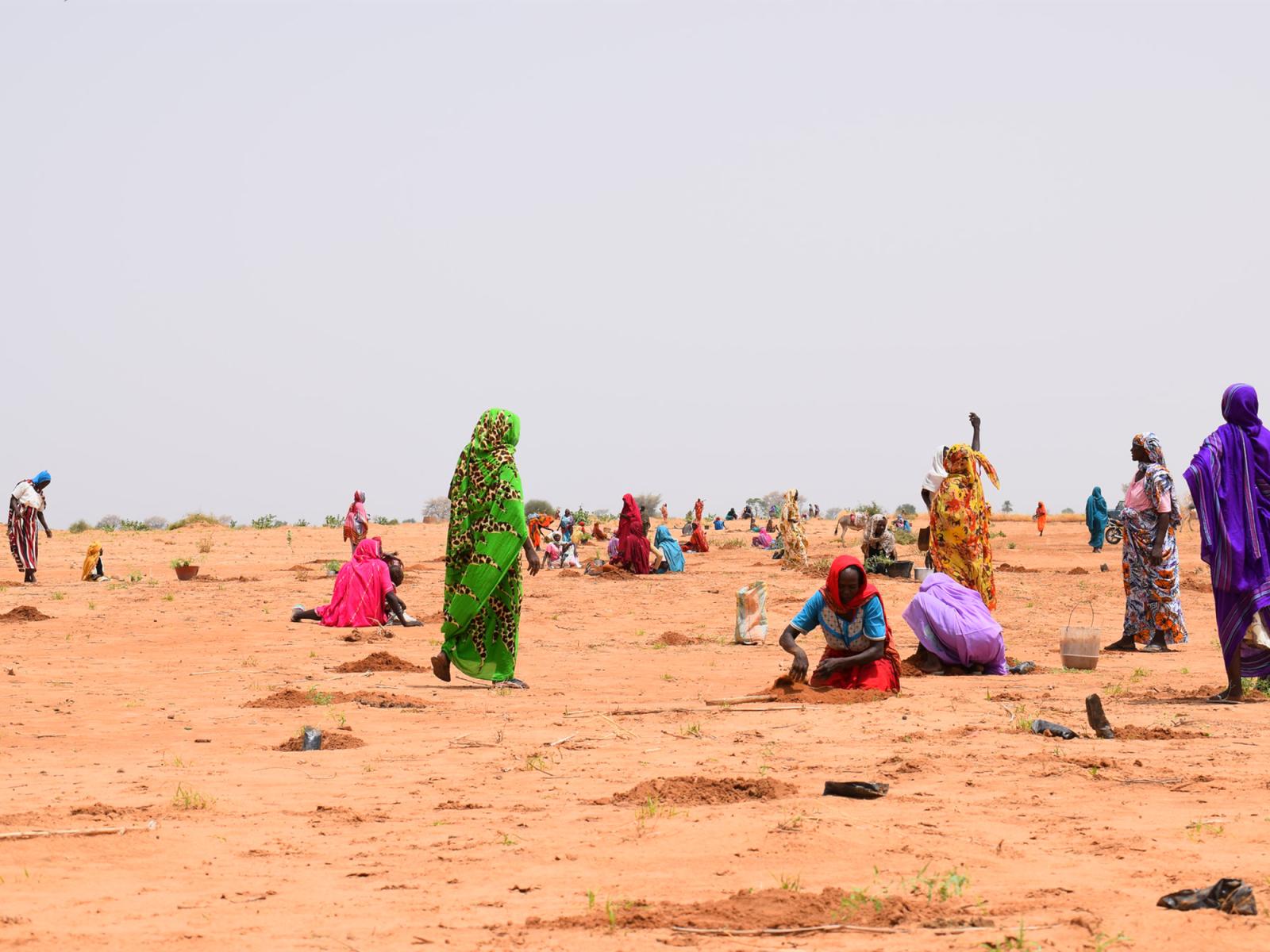
Climate Change, Peace and Security: Understanding Climate-Related Security Risks Through an Integrated Lens
UNEP, UN Women, UNDPPA, UNDP, Adelphi
Welcome!
Climate change is considered by many as among the greatest risks for peace and security in the 21st century. As the planet’s temperature rises, extended droughts, rising sea levels, and more frequent and intense storms are affecting the lives and livelihoods of people in all corners of the globe. Particularly in conflict affected settings, these impacts can compound economic, social or political drivers of insecurity, leaving already vulnerable populations on the frontlines of multiple, intersecting crises.
This self-paced, online course unpacks the interlinkages between climate change, peace and security and explores opportunities for promoting inclusive climate action, conflict prevention and peacebuilding. Recognizing that challenges associated with climate change and insecurity do not impact everyone equally, the course includes a special focus on assessing the ways gender norms and other factors of social identity shape how people from different backgrounds experience and respond to these emerging risks.
Upon completion, course participants will be equipped with the knowledge and tools to analyze different contexts affected by climate change and insecurity, and design interventions to prevent and manage associated risks.
This course is designed to benefit a broad range of policymakers, practitioners, and researchers. The more advanced modules are particularly relevant for political analysts and peacebuilding practitioners, climate adaptation specialists, and gender and inclusion advisors.
What will you learn?
- To identify climate-related security risks and their impacts on different groups of people
- To conduct integrated conflict and climate analysis, including by using a gender and social inclusion lens
- To design policies, strategies, and programmatic interventions that integrate climate change, conflict prevention, peacebuilding, and gender equality objectives
Course structure
The course includes 3 self-standing modules:
Module 1: Climate Change, Peace and Security
Module 2: Conducting Integrated Analysis
Module 3: Entry Points for Policymaking and Programme Design
Will you get a certificate?
The course features two levels of certification:
- Participants will receive a badge for each module they complete by passing the module’s final quiz.
- Participants who pass all three final quizzes will be issued a certificate of completion.
A quiz is successfully passed at a score of 70% or higher. Completion certificates will be available for download from the course’s webpage.
Who is this course for?
Everyone is invited to take the course, which is designed to benefit a broad range of policymakers, practitioners and researchers. The more advanced modules are particularly relevant for:
- Political analysts and peacebuilding practitioners
- Climate adaptation specialists
- Gender and inclusion advisors

